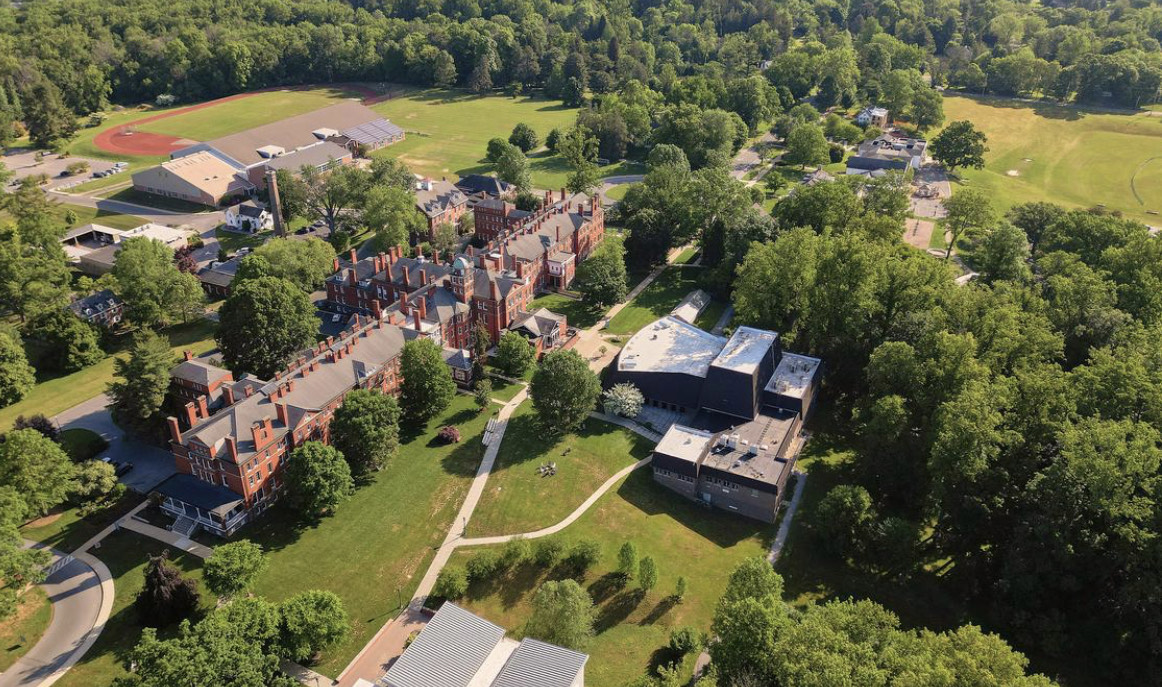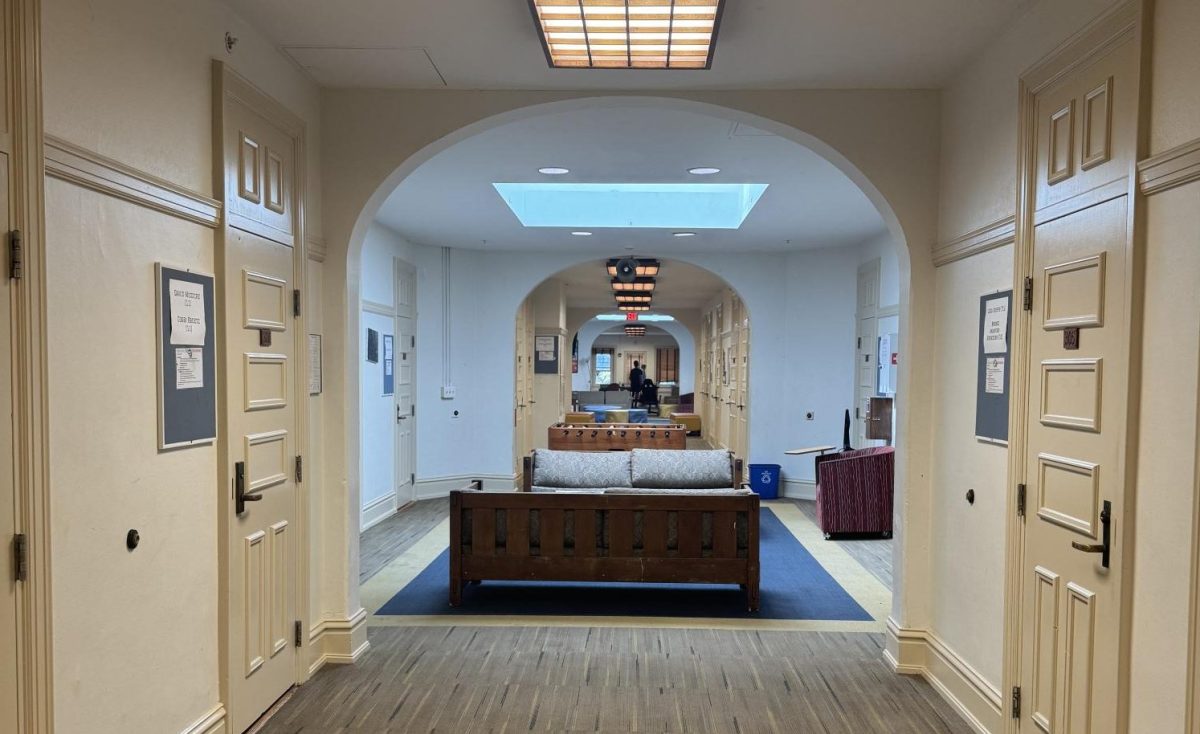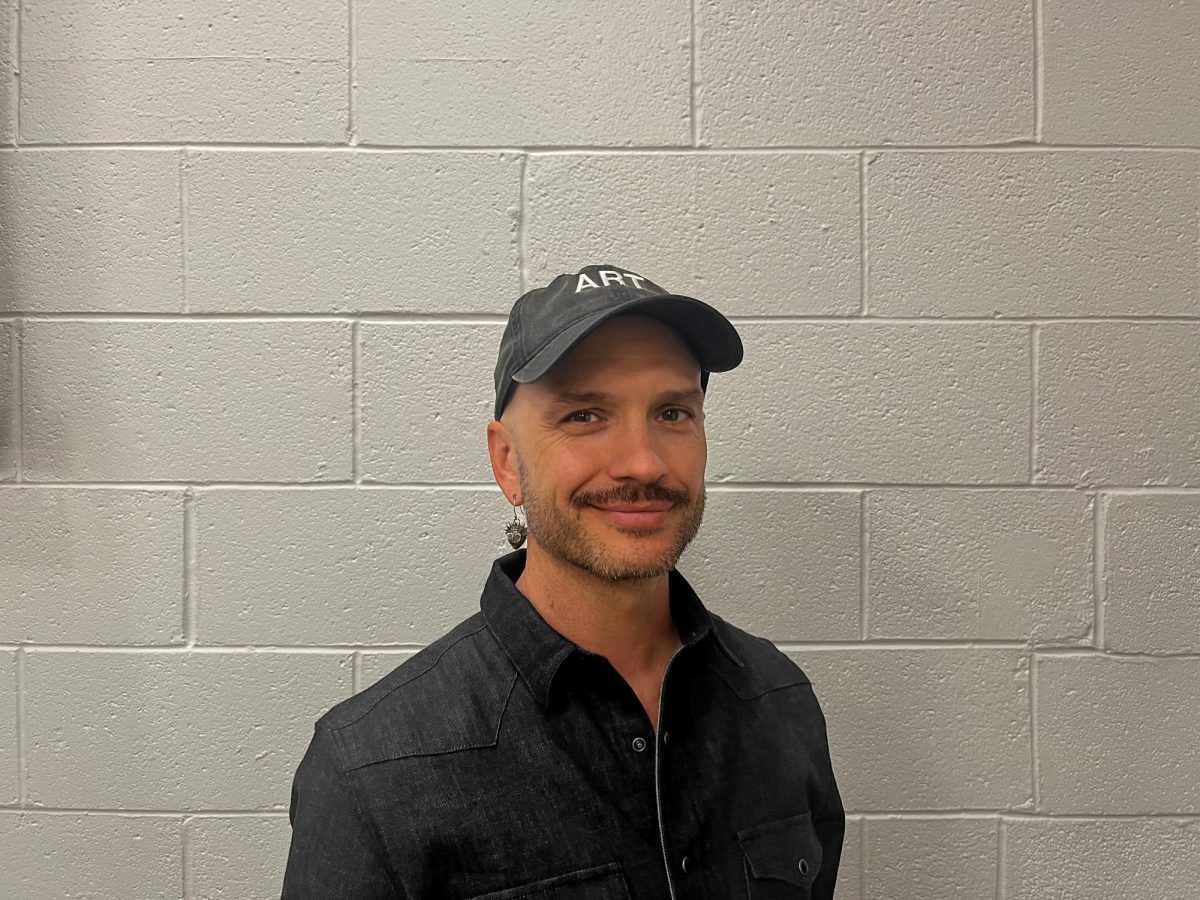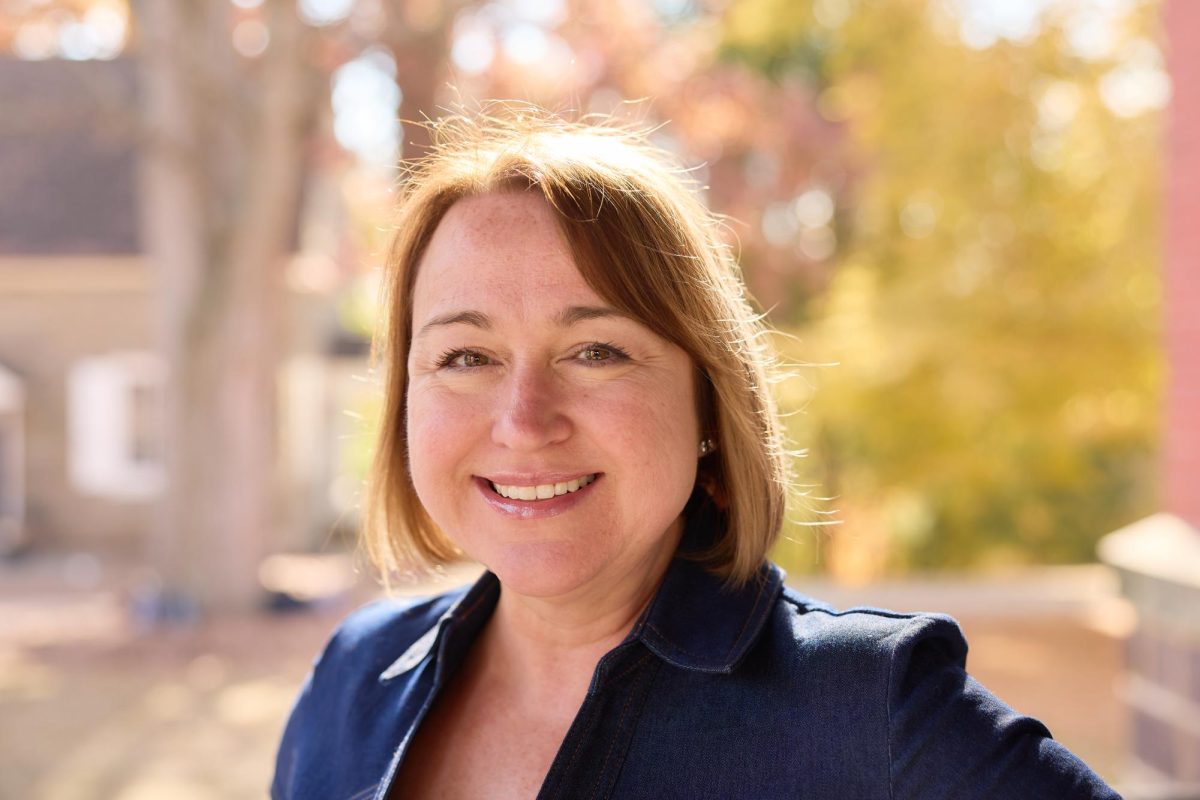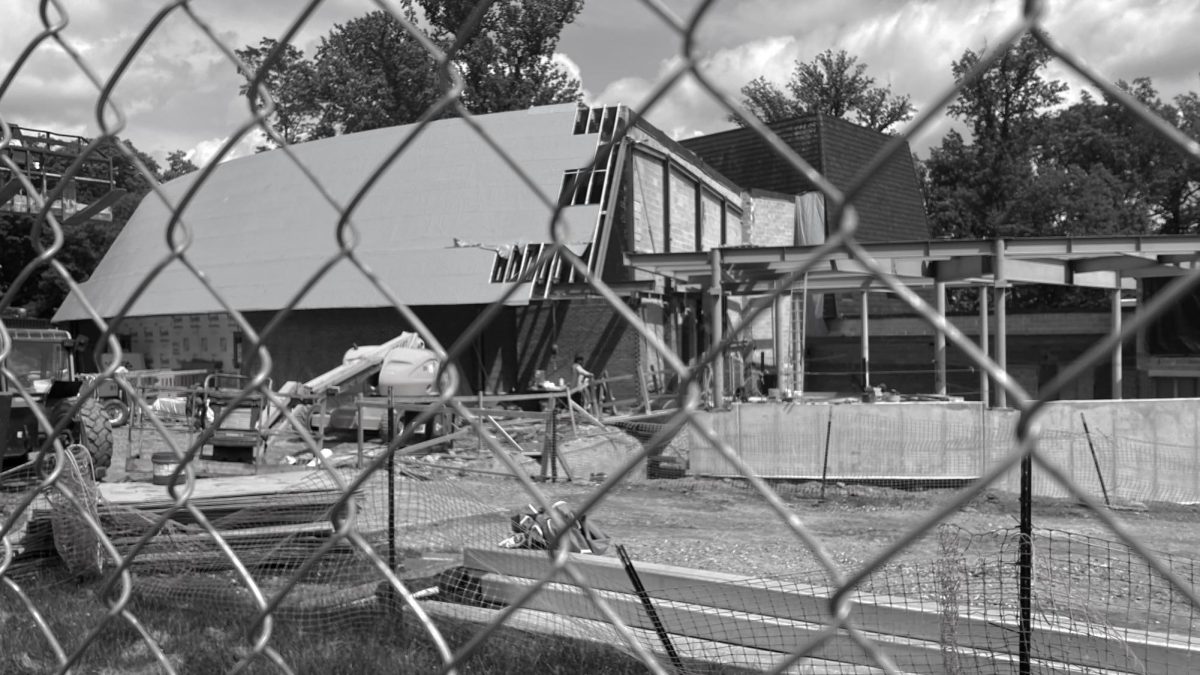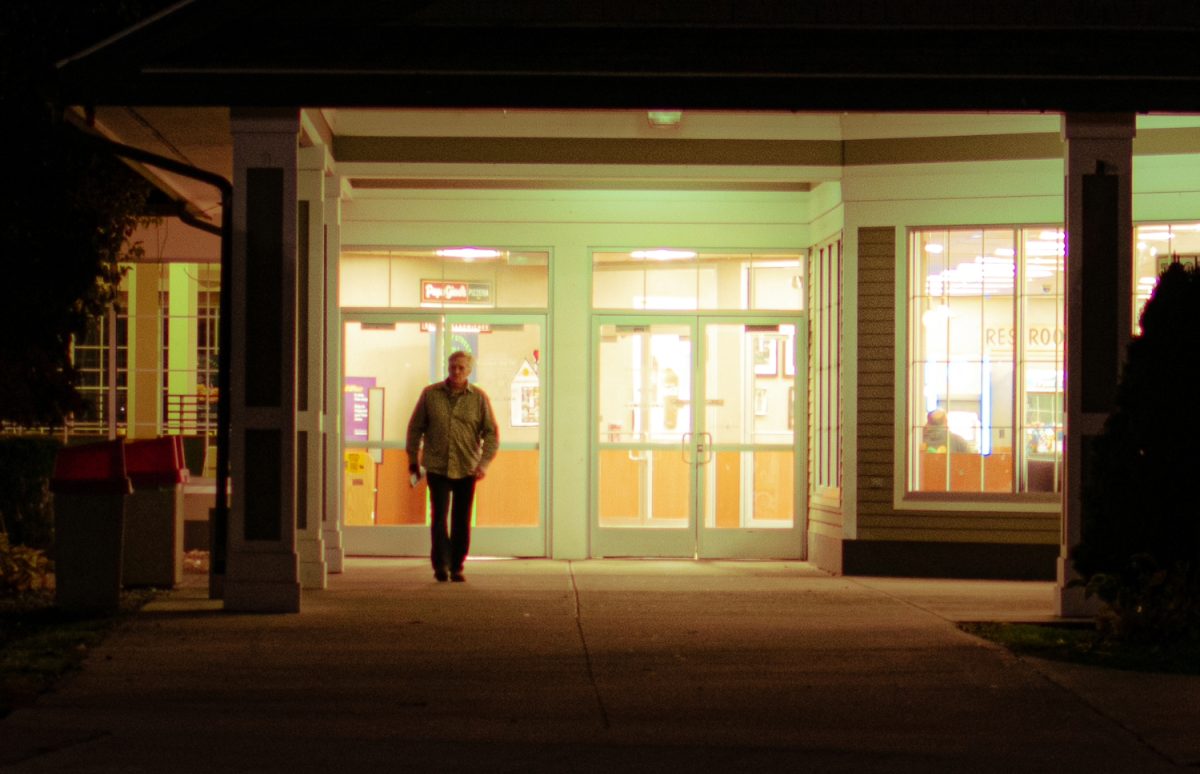At Westtown, sustainability is more than just a buzzword—it’s an integral part of the school’s mission. From waste segregation to energy management, sustainable cleaning practices, and more, faculty and staff are working diligently to reduce the school’s environmental impact. Here, we take a closer look at some of the key sustainability efforts on campus, along with the challenges that still lie ahead.
Waste management at Westtown is a collaborative effort between various departments.
“We deal with the removal when it’s already been separated. We run the contract that takes recycling materials to recycling centers,” T. Kate Donnelly, director of facilities, explained.
Grounds and Finishes Manager, T. Mark Del Negro elaborated on the school’s composting program, saying, “Beth (Pellegrino) and other people in the kitchen separate food waste, and we take that down and work with Farmer Jawn’s compost pile. We then take the material, clean the buckets out, and bring them back. It’s then up to Farmer Jawn.”
T. Mark also highlights Westtown’s efforts to recycle metals like iron, copper, and aluminum, ensuring that they don’t end up in a landfill. Disposing of hazardous materials like cleaning chemicals and batteries is a serious responsibility.
“If chemicals are coming out of the science building, I will store them for a period of time. An outside company then comes and does the rest of it,” T. Mark explained.
T. Kate added that Westtown is committed to using only environmentally friendly cleaning products: “All of the cleaning materials are green certified.”
T. Mark also pointed out that science departments at Westtown are reducing their chemical use: “The science departments are now doing programs that don’t use as many chemicals. The art department isn’t too bad, though paint and clay can sometimes be an issue,” T. Mark said.
Energy conservation is another area where Westtown is making strides. T. Kate shared, “We have a building automation system: automation logic. It monitors and controls the heating and cooling. We program it so that when the buildings aren’t in use, the buildings are cooler and less energy is being used.”
While the school doesn’t yet independently meter energy usage in each building, T. Kate believes they are moving in the right direction.
“The solar field will produce 95% of our energy usage,” T. Kate said.
When it comes to cleaning, Westtown follows sustainable practices. “We use microfiber cloths and certified green cleaning products. Steam can be tricky because it can create mold, so we don’t do that” T. Kate said.
This commitment to using sustainable cleaning products helps reduce the environmental impact of the school’s daily operations.
Both T. Kate and T. Mark are actively involved in sustainability-related training programs.
“Mostly, just continuing the type of classes that they offer. A lot of times there will be sessions made available talking about new products,” T. Kate shared.
T. Mark, added that there are also more specialized training opportunities, including topics like electric buses and compressed gas.
“We learned about electric buses and compressed gas and how it would be accessible for the school. I was just at a training yesterday about signal words. This is really important to understand for safety purposes,” T. Mark said.
There has been a noticeable shift in both students’ and staff members’ awareness of sustainability.
“I would say yes. Especially because we lived through Covid. I’ve been here for six years. In some ways, things got a lot worse because of the volume of ordering out. The Sustainability Committee has been getting more and more traction in the past six years. It ebbs and flows, but now with T. Fran, we’re moving in the right direction and can start implementing some programs,” T. Kate remarked.
T. Mark agreed, saying, “I’ve seen student-driven groups that are more worried about turning lights off. Just being aware of putting lights out is important.”
Reflecting on his lengthy time at Westtown, T. Mark also noted that changes to the campus infrastructure have contributed to greater focus on sustainability: “The school’s footprint has changed a lot, but you also have to think about all the lightbulbs being used. Different buildings are changing the use of the school.”
Westtown is also taking significant steps to reduce reliance on single-use items like disposable cleaning wipes and plastic bags.
“We don’t use disposable cleaning items. We’ll get requests for wipes every once in a while, but we don’t stock those sorts of materials. We use a lot of microfiber cloth,” T. Kate explained.
While plastic bags remain a challenge, she shared, “One thing we did in the last four years is eliminate trash cans in the department offices. We just have recycling bins and a small waste bin attached to that. The person who works in that office is supposed to empty that bin into the large trash can in the hallway.” She also mentioned the challenges with biodegradable bags, saying, “Even if we used biodegradable bags, those can’t be taken to recycling centers.”
Despite the progress Westtown has made, there are still several obstacles to achieving full sustainability. T. Mark identifies the biggest challenge as getting everyone on board.
“You have a few people that want to do it and are really driven, but it needs to be communal for it to work. That’s the mission,” T. Mark said.
T. Kate agrees, adding, “If we get students and faculty to build habits, then that will help the world. After they leave Westtown, they will continue to do those things.” She also highlights the financial consequences of waste mismanagement: “If we get one bag with trash in it that ends up in the recycling dumpster, the school gets charged $200.”
Westtown remains committed to making progress in sustainability.
“We’re always looking at different opportunities. T. Mark has some electric equipment in his shop, and we just got a new hybrid vehicle. Part of our mission is to make steps in the right direction for sustainability,” T. Kate noted.
T. Mark also pointed to the importance of selecting the right technologies as they become available.
“New technology is coming out, and we have to pick and choose the right ones,” T. Mark said.
While Westtown has made significant strides in sustainability, challenges remain. However, with the dedication of faculty, staff, and students, the school is well on its way to ensuring that sustainability will remain a core value for years to come.
